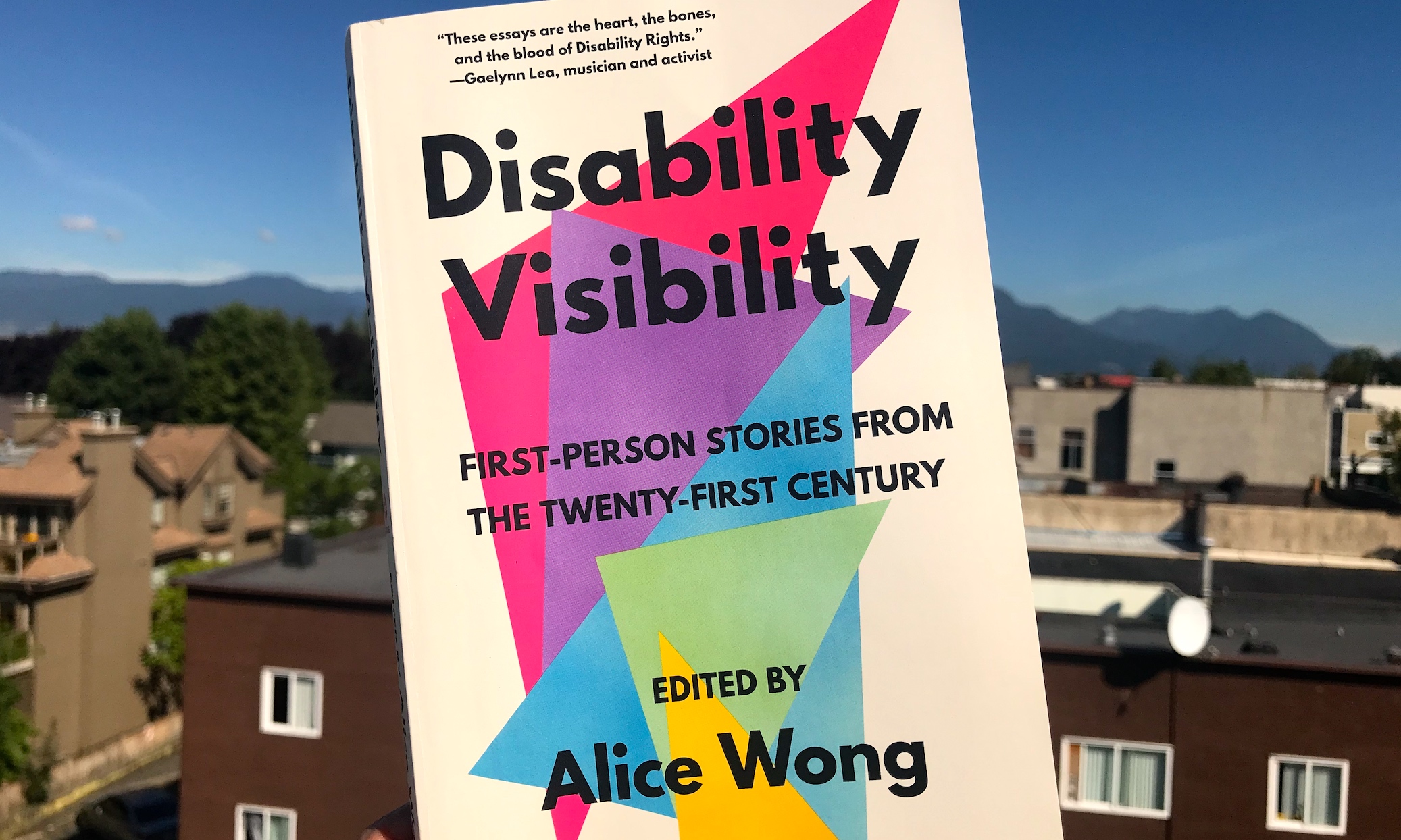Most of the work I do towards inclusion and equity has been around race, gender, and sexuality. This, I suppose, makes sense given my own various identities as a queer woman of colour. But I realize that learning about and combatting the “-isms” directly related to our own selves isn’t enough. Over the past couple of years I’ve been trying to build on that work to find where I can be a better ally to communities and identities I don’t belong to. One such area of learning has been around disability justice. I’m at the very early stages of this education and it’s been all the things it likely is for anyone learning about their own privileges and un-learning all the ways they act out those privileges—uncomfortable and eye-opening, and also helpful and inspiring.
I’ve started following a number of disabled writers and activists on Instagram, one of whom is Alice Wong. Wong is the founder and director of the Disability Visibility Project, “an online community dedicated to creating, sharing and amplifying disability media and culture,” as well as a writer and organizer of several other projects, including a podcast. Her work aims to build “a world where accessibility is understood as an act of love instead of a burden or an afterthought.”
After reading some of her posts and attending a Zoom talk with her and other disability justice advocates, I bought a copy of the new book she edited, Disability Visibility, a collection of essays written by disabled folks.
I wasn’t counting on this book to be such a riveting read—only because I find collections of essays can be really hit or miss and I usually end up just reading a couple here, and few more there, and then leaving some completely unread. But I read this entire collection within a few days. Each essay provided an entirely new and different view (for me) of life as a disabled person, issues affecting disabled people, and what it even means to be disabled. The book includes everything from blog posts to manifestos to eulogies to traditional essays and more.
A few essays stood out for me especially. One was Sky Cubacub’s “Radical Visibility: A Disabled Queer Clothing Reform Movement Manifesto,” a look at how clothing can often not only be inaccessible for disabled people, but also utterly bland and uninspired. Cubacub’s design company, Rebirth Garments, opens up what is possible for not only disabled people, but queer, non-binary folks as well. Their essay crossed all kinds of identity intersections—from race to gender to sexuality to disability to body size and type—and points to the idea that disabled folks don’t just require bare needs met, but rather deserve access to choices and abundance and joy.
“Common Cyborg” by Jillian Weise opened up a whole new world of ideas for me about the coming together of technology and disability, while Ellen Samuel’s “Six Ways of Looking at Crip Time” offered a poetic view of the effects of disability on time itself. These are just three of the thirty-seven essays offering a vast, intersectional array of disabled experiences in this book.
I’m still learning, but this book was an incredible place to dig into that learning. The work disability activists are doing has the potential to affect us all in such powerful ways, as essayist Stacey Milbern points out: “disability justice (and disability itself) has the potential to fundamentally transform everything we think about quality of life, purpose, work, relationships, belong.” I hope you’ll take a look at this incredible collection.

